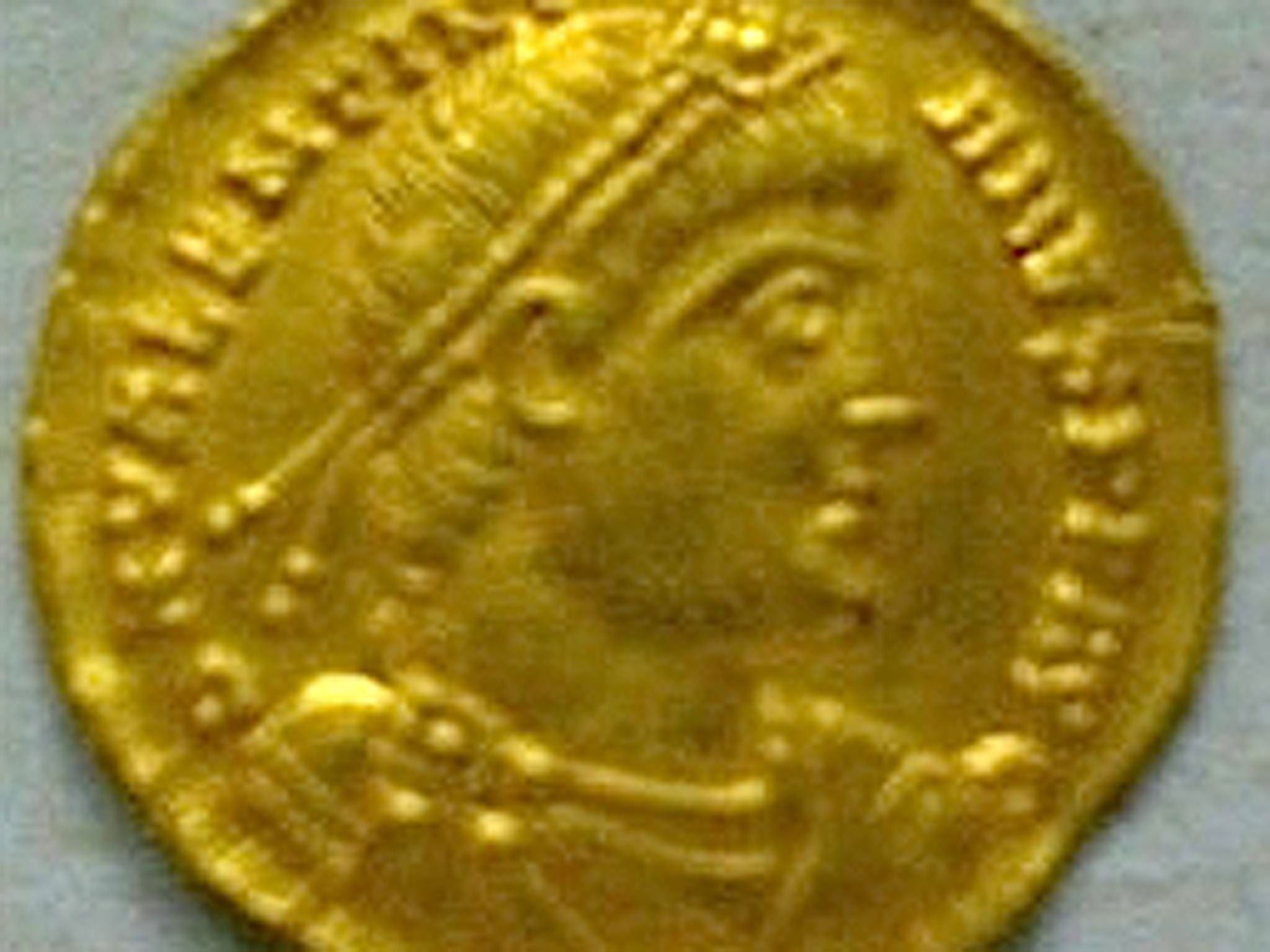Gold Roman coin theft: Delivery man used metal detector to steal 'historically important' artefact
The British Museum contacted the police after they suspected the culprit had the coin

A delivery driver from Essex has admitted to using a metal detector to steal a gold Roman coin from a private estate in Norfolk.
Roy Wood, 52, from Grays, pleaded guilty at Basildon Crown Court on Monday to using the equipment to find a gold Roman coin at Castle Acre, Norfolk.
The coin, worth £200, dates back to the period of Emperor Valentinian, who reigned from 364 to 375 AD.
To make his finding, Mr Wood ‘nighthawked’ – a process which involves a person using a metal detector on private property to recover historical objects or other items of value without permission, according to Andy Long, Wildlife and Heritage Crime Adviser for Essex Police.
As he sentenced Mr Wood, Judge Owen-Jones said the coin was of “archaeological and historical importance” – a factor which would be taking into consideration along with the defendant’s previous good behaviour.
Mr Wood was punished with a fined £400 and ordered to pay in £250 costs.
His sentencing came after the British Museum contacted police in April 2013 to report that they suspected Mr Wood was in possession of two items that he did not report to a coroner, as is required by law.
A month later, police searched Wood’s home and found documents which implicated him in the theft and sale of two gold coins.
The allegation relating to the theft of the second gold coin was dropped.
PC Andy Long, Wildlife & Heritage Crime Officer for Essex Police said that officers work closely with the National Council for Metal Detecting and the Crown Prosecution Service “to ensure the criminal element of this lawful hobby are brought to justice”
"I urge anyone who has information about such activity to contact me either by phone or email," he added.
Mark Harrison, National Policing and Crime Advisor for English Heritage, said: “The practice of illegal metal detecting and stealing historic objects and artefacts from the ground, a practice sometimes referred to as ‘nighthawking’ is an issue that English Heritage takes very seriously.”
"Discoveries of individual artefacts can often by very informative about our common past. The presence of such a coin could be indicative of a previously unknown high status site, in the case of the Roman period perhaps a villa or temple, or provide evidence regarding the wealth of a settlement. That knowledge, in this case, has been lost.”
“We recognise that the majority of the metal detecting community comply with the laws and regulations relating to the discovery and recovery of objects, however, we are prepared to work with the police to identify the criminal minority who operate outside of the law and to bring them to justice.”